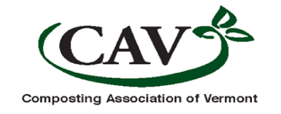When: Saturday, May 11 from 10:00 am – 1:00 pm, followed by an optional tour of the CCS Community Compost shed
Where: Charlotte Library, 115 Ferry Rd, Charlotte, VT 05445
Community composting offers a local option for recycling food scraps and garden/yard materials, putting these valuable resources to good use, and keeping them out of landfills. You can help build healthy soils, right where you live! Small compost systems can be established at homes, in neighborhoods, at community gardens, CSA’s, farms, or schools, or at other locations, such as churches, senior centers, Town Halls or libraries. Residents will learn about collaborative composting (it can be easier than solo home composting!), and how using compost products can benefit their community.
This training is designed to help people and communities determine the composting system that will best meet their goals for collecting and composting food scraps. Participants will gain the knowledge to: choose the best system for their site; manage composting basics; safely collect food scraps; accumulate and store carbon sources; communicate “work flow” with family or fellow composters; and more.
Training Overview:
The “what” and “why” of community composting
Community-driven goals
Compost system options, siting, set up, winter preparation
Composting basics: inputs & outputs, system management
Gathering needed materials: sourcing, quality, community engagement & training
Discussion and Q&A
Hands-on exercises
For more information, contact: Natasha Duarte, natasha@compostingvermont.org or 802-373-6499
Refreshments will be provided; please bring a brown bag lunch, water bottle, and drink mug.
Sponsored by Northeast Recycling Council, Composting Association of Vermont, Town of Charlotte, Charlotte Library,Champlain Valley Cohousing; with funding from a U.S. Department of Agriculture grant.








